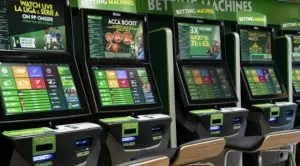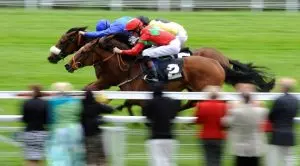 An investigation conducted by the Scottish media the Sunday Mail revealed the self-exclusion system of four major Glasgow landbased sportsbooks is not as efficient as it should be. An undercover reporter working for the Scottish newspaper pretended to be a problem gambler.
An investigation conducted by the Scottish media the Sunday Mail revealed the self-exclusion system of four major Glasgow landbased sportsbooks is not as efficient as it should be. An undercover reporter working for the Scottish newspaper pretended to be a problem gambler.
As such, he self-excluded himself from wagering with four big bookmakers in the country’s most populous city, Paddy Power, Ladbrokes, Coral, and William Hill. Self-exclusion is a voluntary step available to all sports bettors who fear their wagering has slipped out of control.
The self-exclusion system was introduced three years ago by the independent body the Senet Group. It was formed by the four major bookmakers mentioned above to further responsible gambling practices and minimize gambling-related harm.
Under the scheme, photos and information about problem bettors circulate the local bookmaking shops so that the employees can identify the individuals who struggle to control their wagering activities. During the recently conducted investigation, the staff failed to prevent the self-excluded undercover reporter from punting on horse races.
Self-Service Terminals’ Availability Reduces the Scheme’s Efficiency
 The “punter” was supposed to be prohibited from wagering until the end of their self-exclusion period in May 2021, as specified in the documents he received from the Senet Group. The person managed to place racehorse wagers both over the counter and via the self-service machines.
The “punter” was supposed to be prohibited from wagering until the end of their self-exclusion period in May 2021, as specified in the documents he received from the Senet Group. The person managed to place racehorse wagers both over the counter and via the self-service machines.
In one of the instances, the self-excluded punter returned to one of the shops to give the staff a second chance to identify them as a problem gambler. In another, two employees failed to recognize the person as self-excluded.
The undercover reporter returned and punted with some of the bookies on several other occasions one week later. An employee of one of the sportsbooks explained that it is easier for the staff to identify such individuals when they punt at the counter.
The members of the staff regularly receive emails with information about the persons they should watch out for. Preventing problem gamblers from using the self-service machines is more difficult.
This reduces the efficiency of the self-exclusion system because anyone can enter the shop and place a bet on these terminals without being instantly spotted, the employee explained. Employees are expected to take punters to the side if they repeatedly wager large amounts at the counter. However, staff members do not intervene if the person is doing the same via a self-service terminal.
MP Cowan Thinks Self-Exclusion Systems Are Merely “Window Dressing”
 The investigation comes shortly after a Westminster parliamentary group unveiled a report on betting where it warned that such activities may lead to a “public health crisis”. Following the disconcerting findings, MP Ronald Cowan from the Scottish National Party commented that such self-exclusion systems are nothing but “window dressing”.
The investigation comes shortly after a Westminster parliamentary group unveiled a report on betting where it warned that such activities may lead to a “public health crisis”. Following the disconcerting findings, MP Ronald Cowan from the Scottish National Party commented that such self-exclusion systems are nothing but “window dressing”.
Mr Cowan himself admitted to having heard of many cases where gamblers were able to bypass the obstacles that prevented them from making bets. According to the MP, it is evident that sportsbooks care more about attracting new clientèle rather than dealing with problem customers.
Steve Pope, an expert in the field of addiction, echoed these sentiments. Mr Pope gave a concrete example with a self-excluded female patient of his. Following her exclusion, the woman managed to lose £25,000 within a week by wagering both online and in landbased shops.
Not everyone agrees on the inefficiency of self-exclusion systems, however. Sarah Hanratty, Chief Executive Officer of the Senet Group explained that the four operators have been warned about their failing at identifying a problem customer. The CEO believes that despite the findings of the Scottish newspaper, self-excluding remains the most efficient step problem gamblers can take.
Brigid Simmonds, who heads the Betting and Gaming Council, explained that the scheme was intended for individuals who have a real problem with wagering. She finished by revealing they are currently testing a new system for facial recognition that could further help with the identification of self-excluded gamblers.
- Author


